Palestinians hold a diverse range of views on the peace process with Israel, though the goal that unites them is the end of the Israeli occupation of the West Bank. Some Palestinians accept a two-state solution, with the West Bank and the Gaza Strip forming a distinct Palestinian state, whereas other Palestinians insist on a one-state solution with equal rights for all citizens whether they are Muslims, Christians or Jews. In this scenario, Palestinian refugees may be allowed to resettle the land they were forced to flee in the 1948 Palestinian expulsion and flight. However, widespread anti-Semitic sentiments in Palestinian society and Palestinian militancy have hindered the peace process.

Yasser Arafat, also popularly known by his kunya Abu Ammar, was a Palestinian political leader. He was chairman of the Palestine Liberation Organization (PLO) from 1969 to 2004 and president of the Palestinian National Authority (PNA) from 1994 to 2004. Ideologically an Arab nationalist and a socialist, Arafat was a founding member of the Fatah political party, which he led from 1959 until 2004.
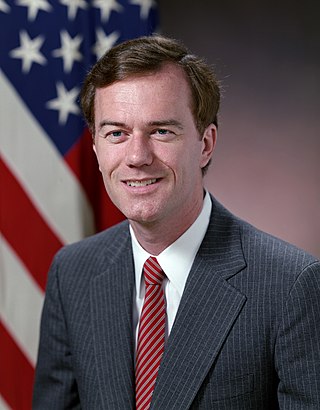
Roy Michael Huffington Jr. is an American politician, LGBT activist, and film producer. He was a member of the Republican Party, and a congressman for one term, 1993–1995, from California. Huffington was married to Arianna Huffington, the Greek-born co-founder of HuffPost, from 1986 to 1997.
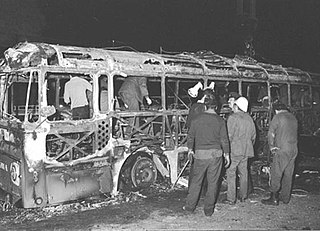
The Coastal Road massacre occurred on 11 March 1978, when Palestinian militants hijacked a bus on the Coastal Highway of Israel and murdered its occupants; 38 Israeli civilians, including 13 children, were killed as a result of the attack while 76 more were wounded. The attack was planned by the influential Palestinian militant leader Khalil al-Wazir and carried out by Fatah, a Palestinian nationalist party co-founded by al-Wazir and Yasser Arafat in 1959. The initial plan of the militants was to seize a luxury hotel in the Israeli city of Tel Aviv and take tourists and foreign ambassadors hostage in order to exchange them for Palestinian prisoners in Israeli custody.
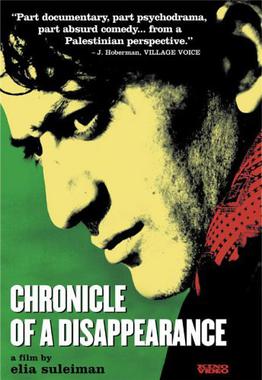
Chronicle of a Disappearance is a 1996 drama film by Palestinian director and actor Elia Suleiman. Suleiman stars in the film along with his family members, his relatives, and other non-actors. Dhat Productions produced the film. The film features no real storyline or character arc. Suleiman plays himself returning to Israel and the West Bank after a long absence which is followed by a series of barely connected vignettes and sketches, which are intended to convey the feelings of restlessness and uncertainty from Palestinian statelessness. The film's tone varies through these scenes such as "Nazareth Personal Diary", which has a light and domestic tone, and "Jerusalem Political Diary", which has a more ideological tone.
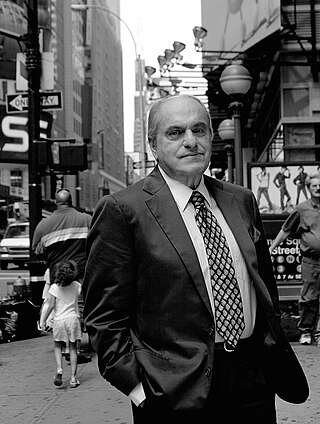
Leon Charney was an American real estate tycoon, attorney, author, philanthropist, political pundit, media personality and Jewish cantor. He lived in Manhattan in New York City, dividing his time between his residences in Tel Aviv and Boca Raton, Florida. In March 2012, Forbes listed Charney as No. 353 among the wealthiest Americans. He was a graduate of Yeshiva University where he participated in demonstrations to free Soviet Jewry, and Brooklyn Law School.
Arab cinema or Arabic cinema refers to the film industry of the Arab world. Most productions are from the Egyptian cinema.
Neo-Zionism is a right-wing, nationalistic, and religious ideology that appeared in Israel following the Six-Day War in 1967 and the capture of the West Bank and Gaza Strip. Neo-Zionists consider these lands part of Israel and advocate their settlement by Israeli Jews. Some advocate the transfer of Arabs not only from these areas but also from within the Green Line.
Israeli–Palestinian Comedy Tour was founded in November 2006 by Palestinian comedian and columnist Ray Hanania and Israeli comedian and online Podcaster Charley Warady. Arab-American Palestinian comedian and award-winning journalist Ray Hanania and his companions from the Israeli–Palestinian Comedy Tour operate under the slogan: "If we can laugh together, we can live together".

Shalom Abu Bassem is a documentary by Nissim Mossek about the Israeli–Palestinian conflict that follows a New York City Jewish settler and an Arab hummus vendor that are forced to live as neighbors in the heart of Jerusalem. The documentary spans a nearly 20-year period, beginning before the First Intifada, to demonstrate how the nation's politics affect their neighborly relations. The film won Best Editing at the Haifa International Film Festival.
The history of the Jews in the United Arab Emirates describes the historical and modern presence of Jews over the millennia in the Middle East and the recorded meetings with Jewish communities in areas that are today in the geographic territories of the United Arab Emirates.

The Abu Dhabi Film Festival, formerly the Middle East International Film Festival (MEIFF), was an international film festival held in the city of Abu Dhabi, United Arab Emirates from 2007 to 2015.

Susan Abulhawa is a Palestinian writer and human rights activist and animal rights advocate. She is the author of several books, and the founder of a non-governmental organization, Playgrounds for Palestine. She lives in Pennsylvania. Her first novel, Mornings in Jenin, was translated into 32 languages and sold more than a million copies. The sales and reach of her debut novel made Abulhawa the most widely read Palestinian author of all time. Her second novel, The Blue Between Sky And Water, was sold in 19 languages before its release, and was published in English in 2015. Against the Loveless World, her third novel, was released in August 2020, also to critical acclaim.
Mohamed Said Mahfouz (Arabic: محمد سعيد محفوظ is an Egyptian writer and filmmaker who has worked for the BBC since 2006. He was the presenter and scriptwriter of the widely popular, daring show 'Maqass El-Raqeeb' on Abu Dhabi TV, focusing on liberties and human rights in the Arab world. He produced a number of independent documentaries and won several awards, of which the last was from Al Jazeera International Documentary festival in April 2009. He has been in the UK since March 2006 where he obtained his Master of Arts in Documentary from Royal Holloway University. Currently, he is pursuing his Ph.D at the same university in New Media and Filmmaking.
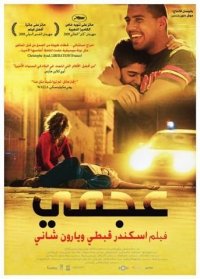
Ajami is a 2009 Israeli Arab drama film. Its plot is set in the Ajami neighborhood of Jaffa, Tel Aviv, Israel.

Israel–United Arab Emirates relations had been jagged and fueled by mutual distrust and hatred for several decades, but in the 2010s, the countries' informal relations improved considerably and they began engaging in extensive unofficial cooperation based on their joint opposition to Iran's nuclear program and regional influence. In 2015, Israel opened an official diplomatic mission in Abu Dhabi to the International Renewable Energy Agency.
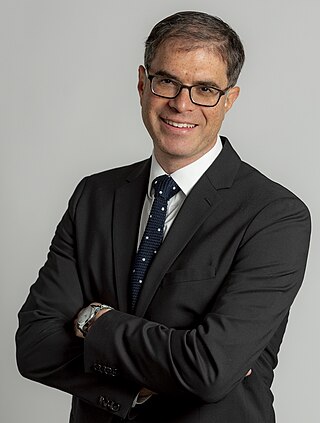
Rabbi Yehuda Sarna is Chief Rabbi of the Moses Ben Maimon Synagogue of the Abrahamic Family House in Abu Dhabi, UAE. He is also Executive Director of the Bronfman Center for Jewish Student Life at New York University (NYU), Adjunct Assistant Professor of Public Administration at the Robert F. Wagner Graduate School of Public Service and University Chaplain at NYU.

The Wanted 18 is a 2014 Palestinian-Canadian animated documentary about the efforts of Palestinians in Beit Sahour to start a small local dairy industry during the First Intifada, hiding a herd of 18 dairy cows from Israeli security forces when the dairy collective was deemed a threat to Israel's national security. The film combines documentary interviews with those involved in the events, archival footage, drawings, black-and-white stop-motion animation as well as re-enactments, and was co-directed by Canadian filmmaker Paul Cowan and Palestinian visual artist and director Amer Shomali. The film was the Palestinian entry for the Best Foreign Language Film at the 88th Academy Awards but was not nominated.

The Abraham Accords are bilateral agreements on Arab–Israeli normalization signed between Israel and the United Arab Emirates and between Israel and Bahrain on September 15, 2020. Mediated by the United States, the announcement of August 13, 2020, concerned Israel and the UAE before the subsequent announcement of an agreement between Israel and Bahrain on September 11, 2020. On September 15, 2020, the signing of the agreements was hosted by US president Trump on the Truman Balcony of the White House amid elaborate staging intended to evoke the signings of historic formal peace treaties in prior administrations.













